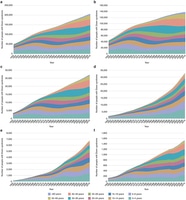Patients & Families

The Massachusetts General Hospital (MGH) Center for Genomic Medicine (CGM) is leading an effort to complete the genomic medicine cycle - from genetic discoveries to mechanism to the clinic - by assessing where genomic medicine will have the greatest impact on human health, and by driving efforts to implement genomic medicine in those areas, at MGH and beyond. The Cycle is a paradigm for disease research that begins by comparing human phenotypes and genetic variation to identify genes of importance in human disease, then moves on to characterizing the mechanisms by which the underlying DNA differences lead to disease, and is completed when the knowledge gained delivers benefit back to patients in the forms of improved diagnosis, disease management and treatments.

Genomic medicine refers to diagnosis, prediction, prognosis, prevention and/or treatment of disease using approaches informed or enabled by knowledge of the genome and the molecules it encodes.


Genet Med. 2016 Sep 8. doi: 10.1038/gim.2016.127. [Epub ahead of print]
An accurate accounting of persons with Down syndrome (DS) has remained elusive because no population-based registries exist in the United States. The purpose of this study was to estimate this population size by age, race, and ethnicity. Until 2008, DS was a rare disease. In more recent decades, the population growth of people with DS has leveled off for non-Hispanic whites as a consequence of elective terminations. Changes in childhood survival have impacted the age distribution of people with DS, with more people in their fourth, fifth, and sixth decades of life.
Estimation-of-the-number-of-people-with-Down-syndrome-in-the-United-States.pdf
Dr. MacDonald, a molecular geneticist, earned a Ph.D. in Medical Biophysics at the University of Toronto in 1980. Her laboratory utilizes genetic strategies to understand the key underpinnings of inherited […]

Chris Newton-Cheh is a heart failure cardiologist and human geneticist. The Newton-Cheh lab studies the genetic basis of cardiovascular traits and disease, follows up genetic leads to identify previously unsuspected […]

Dr. Perlis is a graduate of Brown University, Harvard Medical School, and the Harvard School of Public Health. He serves as co-PI of an NIMH/NHGRI-supported Center of Excellence in Genomic […]

My research focuses on two neurological disorders, familial dysautonomia (FD) and mucolipidosis type IV (MLIV), as well as the common cardiac disorder mitral valve prolapse (MVP). Our work is focused […]

Dr. Smoller is Professor of Psychiatry at HMS, and Professor in Epidemiology at the Harvard T.H. Chan School of Public Health. At MGH, he is the Trustees Endowed Chair in Psychiatric […]

Dr. Doyle is a practicing child and adult clinical psychologist trained in psychiatric genetics, developmental psychopathology and pediatric neuropsychology. Her research aims to contribute to and leverage genetic discoveries in […]

Florian Eichler, a neurologist, leverages the biology of single gene disorders affecting the nervous system to develop treatments for leukodystrophies and hereditary neuropathies. Among his scientific contributions, Dr. Eichler has […]

Dr. Grishchuk obtained her Ph.D. in Molecular Biology from Engelhardt Institute of Molecular Biology in Moscow, Russia. During her post-doctoral training at the Brain Mind Institute, EPFL, and University of […]